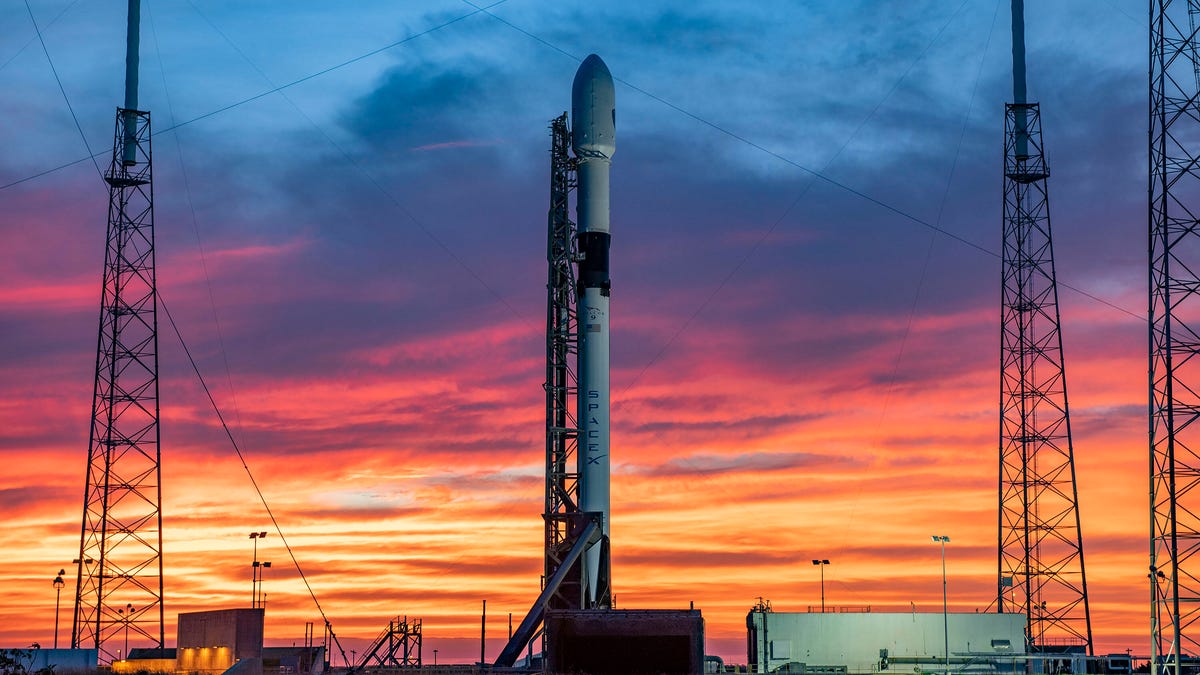SpaceX launches Space Force GPS satellite and sticks another landing
After a dramatic last-second abort early this month, Elon Musk's rocket company finally escorted a new military satellite to space.

SpaceX shared this earlier scenic view of the Falcon 9.
A shiny new SpaceX Falcon 9 rocket on Thursday successfully lofted the latest military satellite to space for the US Space Force.
Elon Musk's rocket company finally launched the third-generation military GPS satellite after a series of earlier delays. It was initially set for blastoff in late September but then got pushed back a few days. It came close to lifting off Oct. 2, but the launch was aborted with just two seconds to go on the countdown clock.
The unexpected issue led to a few other delays, notably of NASA's Crew-1 mission to send four astronauts to the International Space Station aboard a SpaceX Crew Dragon capsule, out of concern that the issue could crop up on other Merlin engines.
An investigation revealed that a bit of "masking lacquer" had blocked a relief valve line, causing two of the rocket's nine Merlin engines to attempt to fire early. The suspect engines were swapped out and new launch dates set.
Now the GPS III Space Vehicle 04 is on its way to orbit. The first stage booster used in the launch landed on the droneship Of Course I Still Love You in the Atlantic Ocean less than nine minutes after liftoff. It is set to make its second flight on another GPS satellite mission in 2021.
Liftoff! pic.twitter.com/LI4O0TNmL8
— SpaceX (@SpaceX) November 5, 2020
The company is also expected to try to recover the halves of the fairing or nose cone using different ships.
The next SpaceX launch is expected to be the aforementioned Crew-1 mission for NASA. Liftoff is set for Nov. 14.

